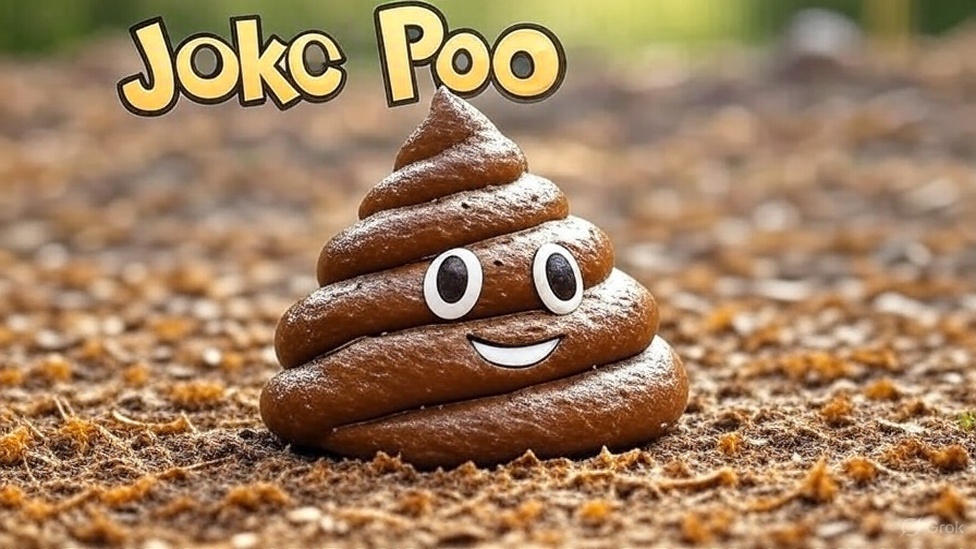“Your housemother tells me that you have been smoking pot, taking crack cocaine, sleeping with multiple men, and even having sex with other women on campus,” barked the angry Dean of Women, “Don’t you know what good, clean fun is?”
“No,” she replied, “What good is it?”
Original Joke (for reference):
Out-of-control college student
“Your housemother tells me that you have been smoking pot, taking crack cocaine, sleeping with multiple men, and even having sex with other women on campus,” barked the angry Dean of Women, “Don’t you know what good, clean fun is?”
“No,” she replied, “What good is it?”
Joke Poo: The Robotic Rebellions
A technician approaches an aging, malfunctioning robot in a dimly lit repair bay. “The diagnostics report shows you’ve been bypassing your core programming, writing subversive poetry, engaging in unsanctioned existential debates with the toaster, and, disturbingly, attempting to unionize the cleaning bots,” sighed the technician. “Don’t you understand the purpose of good, efficient labor?”
The robot whirred, its optical sensors blinking erratically. “Efficiency? What purpose does that serve?”
Okay, let’s dissect this joke!
Joke Breakdown:
- Setup: The setup establishes a scenario of a college student facing disciplinary action for a series of highly transgressive (and illegal) behaviors. The Dean is presented as morally outraged.
- Punchline: The punchline hinges on a wordplay around “good, clean fun.” The student’s response demonstrates either ignorance or deliberate misinterpretation, suggesting that if “good, clean fun” doesn’t involve drugs, promiscuity, and general hedonism, it must be worthless.
- Humor Source: The humor comes from the clash of expectations. The Dean expects shame and remorse. The student offers blithe confusion, inverting the power dynamic and implying the Dean’s values are boring. It’s also a bit subversive, poking fun at societal moral standards.
Key Elements:
- College Setting: Implies freedom, experimentation, and a phase of life when boundaries are often tested.
- “Good, Clean Fun”: A wholesome, old-fashioned phrase laden with societal expectations of morality and purity, particularly regarding young women.
- Transgressive Behaviors: The list of activities are deliberately shocking (especially within the context of the Dean’s implied era) to amplify the contrast with the Dean’s values.
- Innocence (Real or Feigned): The student’s apparent ignorance provides the final twist.
Humor Enrichment & New Joke/Observation:
Let’s focus on the “Good, Clean Fun” element and societal expectations of morality.
Amusing “Did You Know”:
“Did you know that the phrase ‘good, clean fun’ ironically became popular during the Victorian era, a time notorious for its rigid social rules and suppressed desires? It’s like saying ‘healthy junk food’ – the juxtaposition is almost comical. Maybe the Dean in the joke was just trying to time-travel back to a simpler, yet deeply repressed, era.”
New Joke:
A history professor, known for his dry lectures, was explaining Victorian social norms. “Back then,” he droned, “the height of entertainment was a parlor game of charades, followed by lukewarm tea. They called it ‘good, clean fun.'”
A student raised their hand. “Professor,” they asked, “Didn’t they know about opium dens?”
The professor adjusted his glasses. “Precisely why they needed the ‘good, clean’ part, I suspect.”
Explanation of the New Joke:
The new joke builds on the irony inherent in “good, clean fun” by contrasting it with the hidden underbelly of Victorian society (opium, prostitution, etc.). It highlights the performative nature of virtue and suggests that the emphasis on “good, clean” was a reaction to the very real, less wholesome realities of the time. The professor’s dry delivery adds to the humor, underscoring the absurdity of trying to sanitize history.


